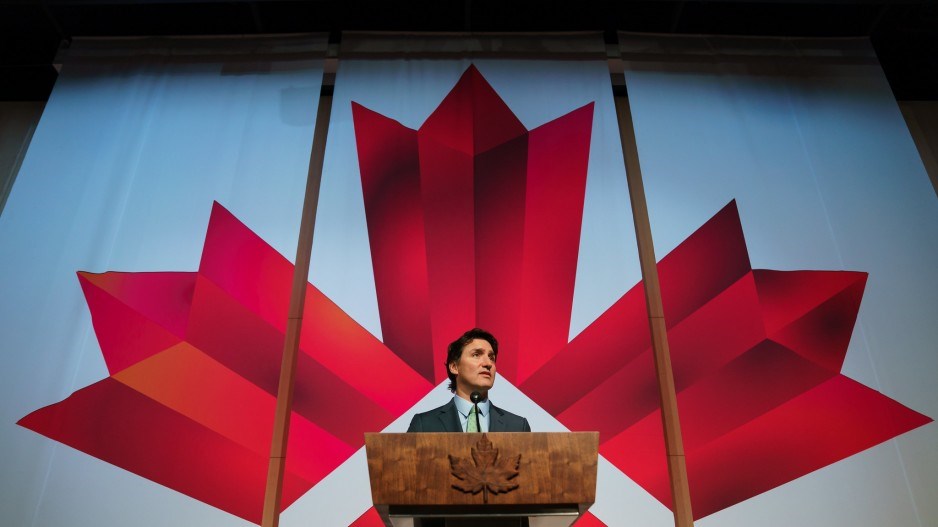During the final weekend of February, federal NDP leader Jagmeet Singh made the rounds on TV political shows to reveal that a deal had been reached with the Liberals to establish a national pharmacare program. Since March 2022, the two parties have partnered in a supply and confidence agreement that also spawned a framework for dental care coverage.
When Research Co. and Glacier Media asked Canadians, two-thirds (67 per cent) welcomed the establishment of a national pharmacare program. The proposed plan is well liked in B.C. (72 per cent), followed by Atlantic Canada (69 per cent), Ontario (also 69 per cent), Saskatchewan and Manitoba (66 per cent), Alberta (65 per cent) and Quebec (62 per cent).
More than three in five Canadians who voted for the Liberals (78 per cent) or the New Democrats (76 per cent) in the last federal election are happy in the initial stages of the program. Support is lower among those who cast ballots for the Conservative Party in 2021 (54 per cent).
Early discussions have focused on two broad topics. More than seven in 10 Canadians (71 per cent) think contraceptives and birth control should “definitely” or “probably” be included in the program and 85 per cent feel the same way about insulin for Type 1 and Type 2 diabetes.
The inclusion of birth control on the national pharmacare program is particularly popular with women (77 per cent) and Canadians aged 18 to 34 (73 per cent), while more than nine in 10 Canadians aged 55 and over (91 per cent) are happy with the presence of medications to treat diabetes.
Canadians expect the program to ultimately be far-reaching. More than three in five say six types of medication should “definitely” or “probably” be part of it: Blood pressure medication (84 per cent), antibiotics (82 per cent), cholesterol lowering medication (77 per cent), antidepressants (73 per cent), anticoagulants (68 per cent) and pain relievers (65 per cent).
Fewer than half of Canadians would include vitamins (47 per cent) and nutritional supplements (also 47 per cent). This last category outlines an age disparity. Only 31 per cent of Canadians aged 55 and over believe nutritional supplements should be part of the deal, compared to 50 per cent among Canadians aged 35 to 54 and 59 per cent among Canadians aged 55 and over.
Aside from the pending discussions related to what to cover and how, the political ramifications of the announcement could be enormous. Across the country, 46 per cent of Canadians say they trust the current Liberal government to successfully roll out the national pharmacare program. That is lower than the all-time high level of satisfaction of 70 per cent (registered during the COVID-19 pandemic in June 2020), but better than Prime Minister Justin Trudeau’s approval rating of 39 per cent in November 2023.
Confidence in the current administration to manage this new endeavour reaches 48 per cent among women, 49 per cent among Canadians aged 18 to 34, and 49 per cent in both Ontario and Quebec. The Liberals cannot afford to do poorly in either of the two most populous provinces in the next federal election, so establishing an emotional connection on this file could help the governing party.
Canadians have a clear idea of what they want to see in the event of a change in Ottawa. Only 25 per cent believe that the Conservatives should cancel the national pharmacare program if they form the government after the next federal ballot.
Almost three in five Canadians (58 per cent) disagree with the notion of the Conservatives abandoning the national pharmacare program. This proportion rises to 63 per cent among those aged 18 to 34 and to 60 per cent among respondents in the lowest income bracket. Even Conservative voters in 2021 are convinced that running against the national pharmacare program would be unwise. Only 30 per cent would be ready to pull the plug if Pierre Poilievre becomes prime minister.
The issue of provincial governments refusing to side with a federal mandate will provide plenty of fodder for discussion. Across Canada, only 27 per cent of residents want their province to opt-out of the nascent national pharmacare program.
There are some regional differences. More than a third of Quebecers (35 per cent) are willing to opt-out. The proportions are lower in Atlantic Canada (29 per cent), Saskatchewan and Manitoba (28 per cent) and Ontario (27 per cent). The two provinces at the bottom of the list are Alberta, where Premier Danielle Smith wants to opt-out (24 per cent), and B.C. (15 per cent).
Though in its early stages, the national pharmacare program is regarded as positive by most Canadians. But if the scope of the program does not include medications that many Canadians rely upon, positive perceptions may plummet.
Mario Canseco is president of Research Co.
Results are based on an online study conducted from Feb. 25-27, 2024, among 1,001 adults in Canada. The data has been statistically weighted according to Canadian census figures for age, gender and region. The margin of error is plus or minus 3.1 percentage points, 19 times out of 20.



